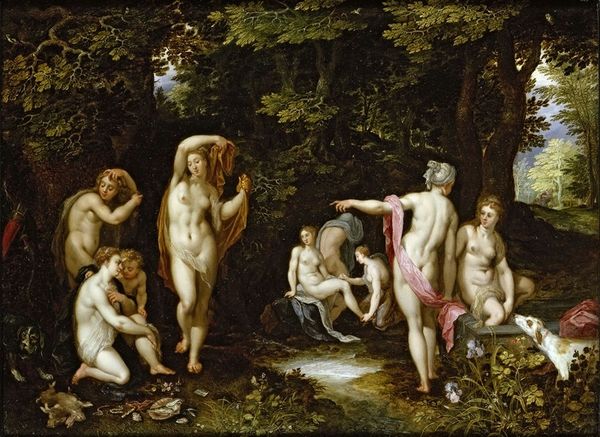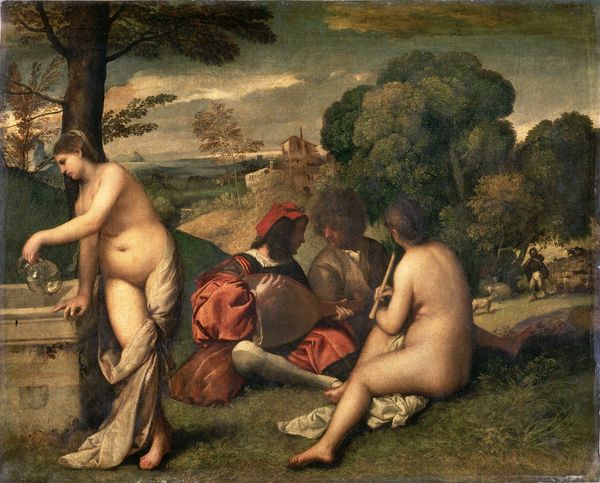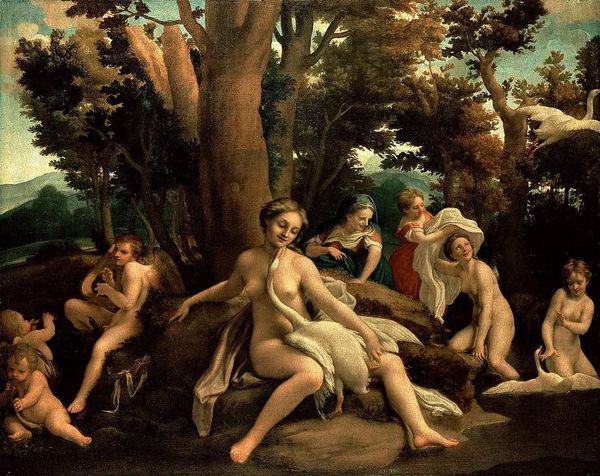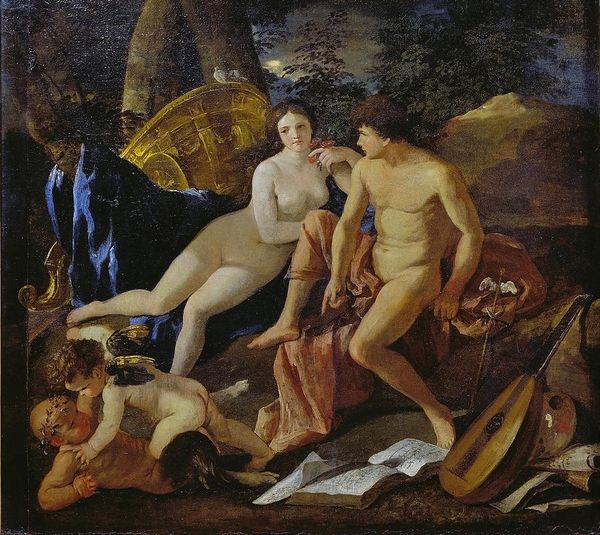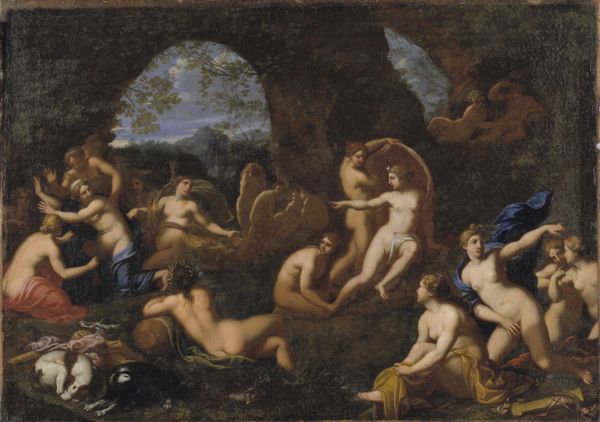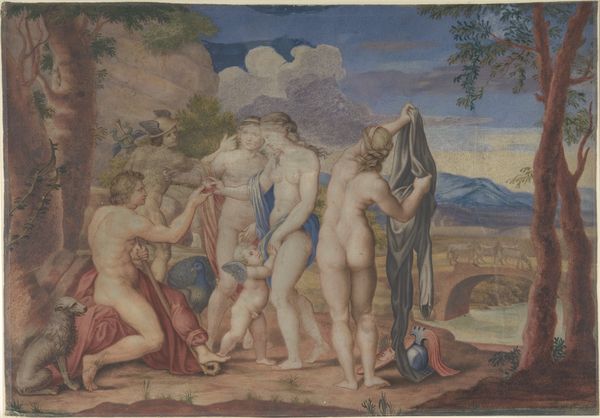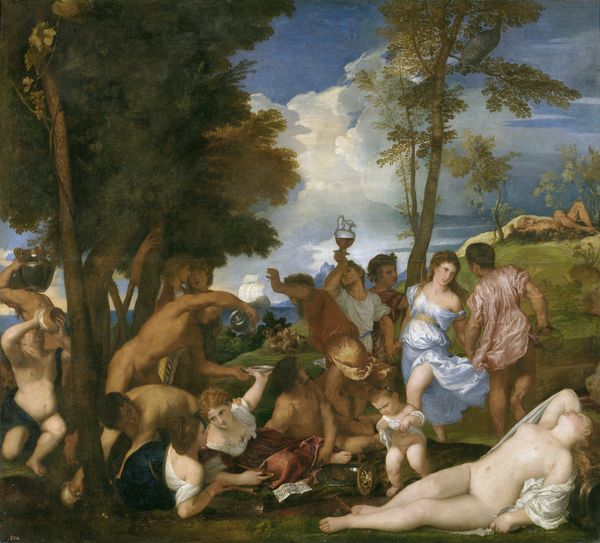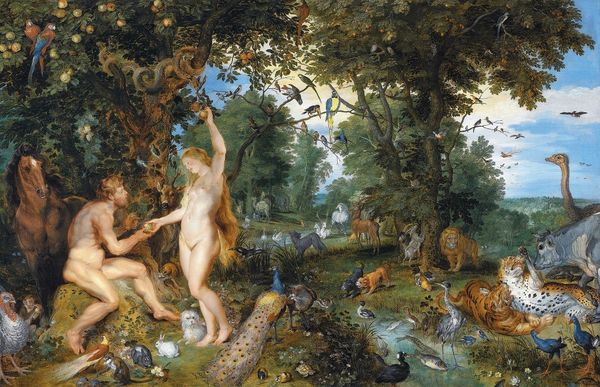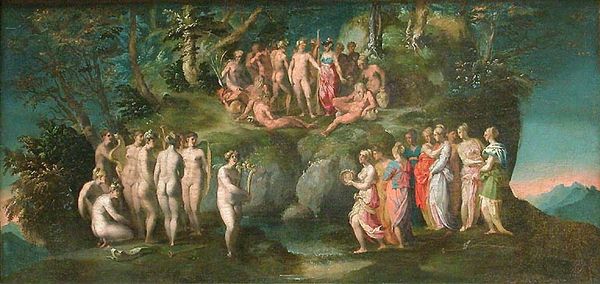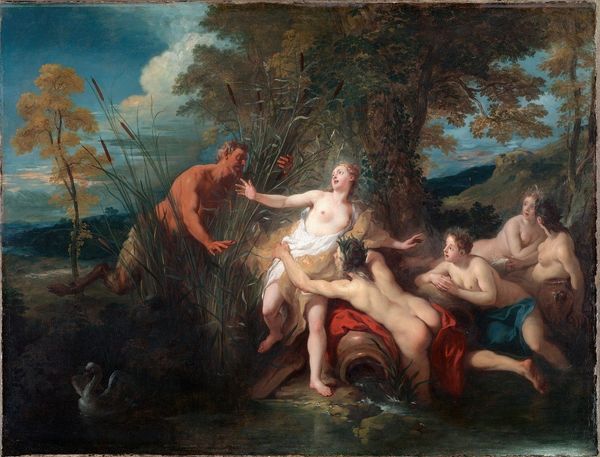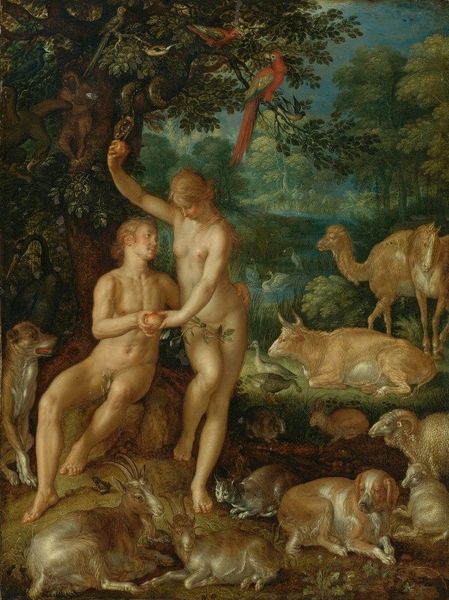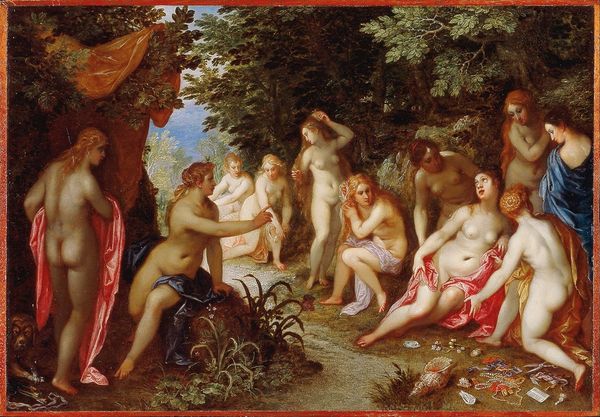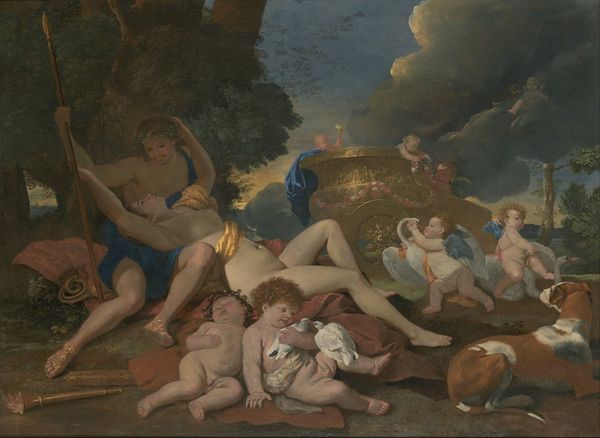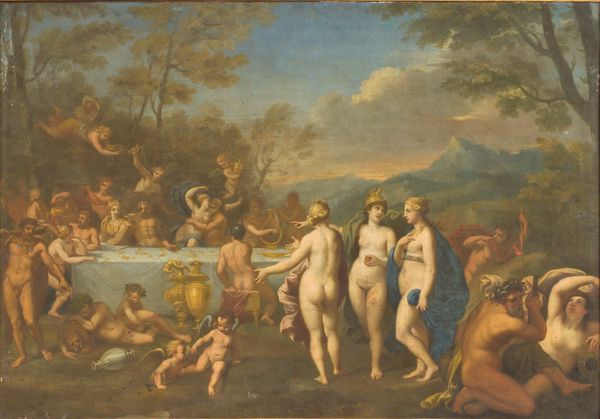
painting, oil-paint
#
gouache
#
venetian-painting
#
painting
#
oil-paint
#
landscape
#
figuration
#
roman-mythology
#
mythology
#
italian-renaissance
#
nude
Copyright: Public domain
Curator: Standing before us is "Orpheus," a work realized circa 1515 by the Venetian master, Giovanni Bellini. Editor: What strikes me first is how utterly weird it is—like a dream where someone vaguely remembers the myth and then just fills in the blanks with whatever was lying around in the studio. Curator: Let’s examine the painting's structure. Bellini employs oil paint and possibly gouache to craft this idyllic, yet unsettling, landscape. Note the distribution of figures—their placement is deliberately unbalanced, almost stage-like, with the stark geometry of the forest juxtaposed against the rounded forms of the figures. The overall impression leans towards Venetian painting traditions blended with the emerging ideals of the Italian Renaissance. Editor: Yes, but doesn't it feel like Renaissance painting that’s gone through a washing machine set to "delicate"? The light feels almost... sentimental? Look at the figures: everyone is nude but terribly disinterested. The hunter seems ready to shoot an arrow and a dog seems interested in leaving the picnic. And Orpheus—or someone who presumably is—sits lounging like it’s just another Tuesday afternoon of really, really bad gigs. Curator: The semiotics are complex. We have references to the classical mythos. Nudity invokes classical idealism, while the landscape roots the narrative in earthly reality. The painting embodies a profound tension between ideal form and perceived reality—a tension Bellini masterfully orchestrates using color and composition. Editor: Maybe "tension" is too strong a word. I would say this is a painting of a world that doesn’t quite add up; it feels more odd than tense, somehow beautifully, poetically…wrong. Perhaps it reflects some secret part of ourselves and our need for beauty, however strange. Curator: A poignant insight. Looking at "Orpheus" truly allows us a glimpse into the layered intricacies of the Renaissance spirit. Editor: Right. It leaves one in a place that’s part paradise, part awkward family gathering, and all very, very intriguing.
Comments
No comments
Be the first to comment and join the conversation on the ultimate creative platform.
